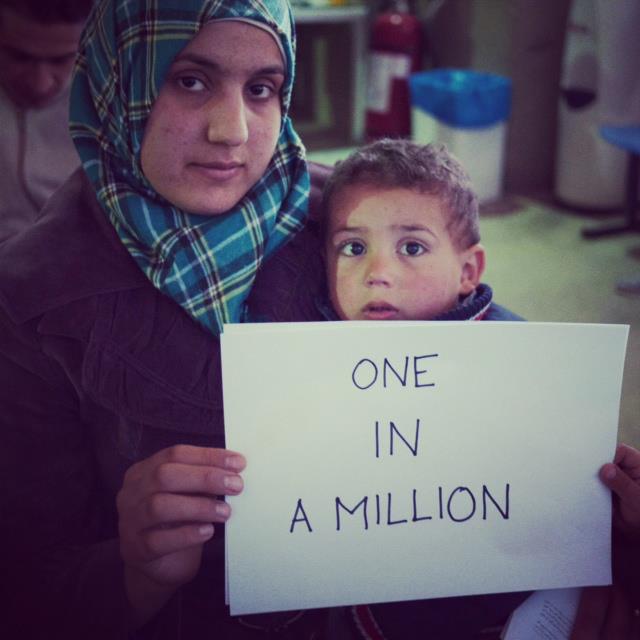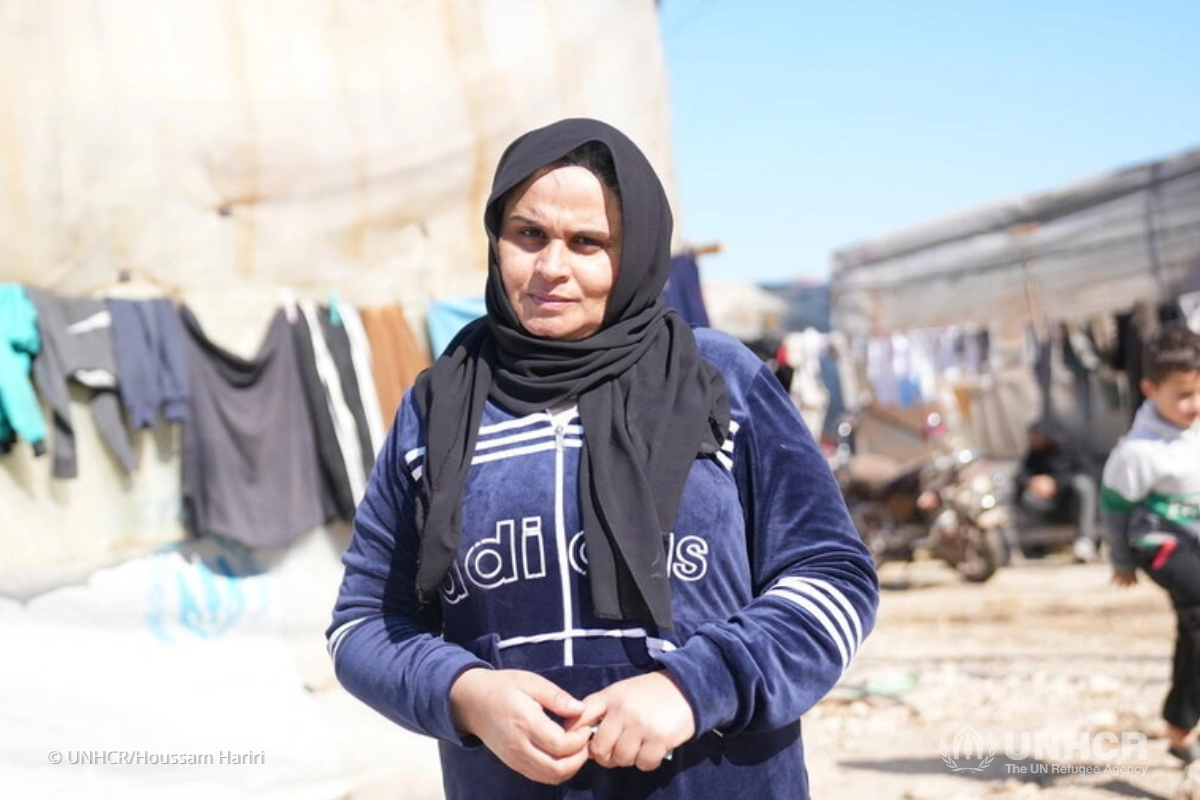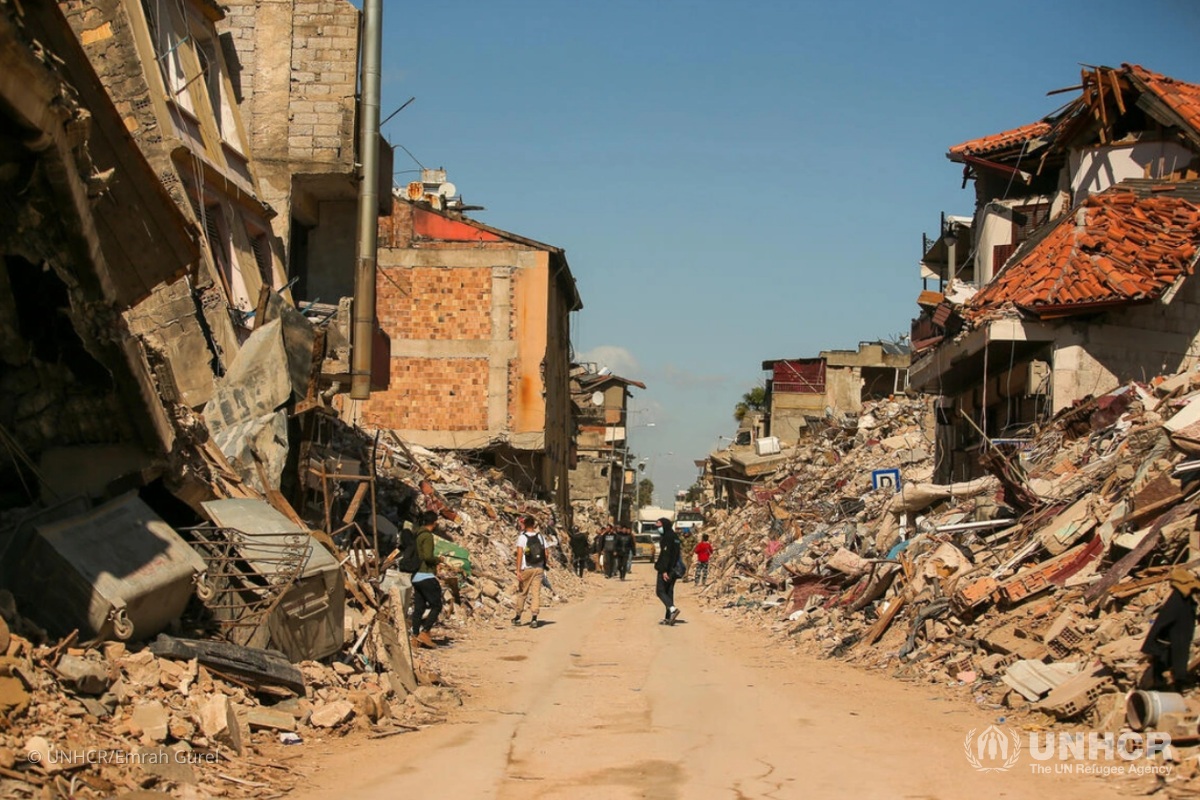Bushra’s story:
Bushra sits in a two-room hovel in muddy slum that people here call “Tin Village.” The 19-year-old holds her son Sleiman closely to her in the little corner where they sleep at night. Her daughter Hanin is nearly four years old now. She too huddles close to her mother.

Bushra's story is as heartbreaking as a million others. ©UNHCR
Fifteen people share this room at night. There is her father-in-law, mother-in-law and their family. Many of them have also fled from Syria seeking a safe haven from the violence and conflict that has engulfed their village of Homs.
Falling to sleep is a battle for Bushra. Sometimes she has to press her pillow on her head to get the negative thoughts out of her mind. But once she drifts into sleep, Bushra dreams of home. And it is in that place where a certain comfort resides. And in the dream she is holding his hand. Holding it tightly as she speaks to him of her day. She tells him of how she feels guilty about chiding young Hanin to behave. “I feel badly because I know she needs to be compensated for the loss of her father.”
Bushra lost contact with Mohammed* (not his real name) in Syria a year and two months ago. The night before they sat on the roof of their home, watching the shells rain down on a neighboring village. They saw the different weapons in the sky. It was as if they were hiding something from each other. “That night really felt like goodbye,” Bushra said. “We were fidgeting. We didn’t know what to do or say.” Mohammed* told her that if something should happen to him that she must take care of the children.
They had been married since she was 14 years of age. And now Bushra has only one wish for the future: “My wish is to hear anything about my husband,” she says. “I want to see my husband, to go back home to with my husband.”
Before the war, life was safe for Bushra and Mohammed. She was a housewife and he had a delivery truck that took pastries to the local market and cement to builders. They were not wealthy but they could eat what they wanted --grilled meat for dinner or vegetables if they wished. The family lived with their parents on the ground floor of their house. They had a garden and her father-in-law would tend to the flowers. “The flowers were as many colors as you like,” she said.
But then two years ago, the troubles began. The tanks arrived and the shelling started. The shells rained down on people day and night. “They were shelling from sunrise to sunset,” she said. “We would listen to the sounds of the shells to see where they came from. There were times we had to sleep in the toilet out of fear.”
And still during the day they attempted to find a sense of normalcy. Bushra’s mother-in-law would visit relatives. “We stayed in our house for as long as we can bear,” she said. “There were threats from random gangs who were raiding houses. My husband was worried particularly for my safety.”
Mohammed asked his wife to leave. He was particularly concerned that his wife would be raped. And so she and the children moved to Taqsis. They stayed with other family members until one of her brother-in-laws was kidnapped for two days.
When he returned it was time to flee again -- this time for Hamma. But then the shelling arrived in Hamma. “We would move for 10 days then we would go back home. Move for another 10 days and then go back home,” she says. Each time she was happy to see her husband.
And then a year and three months ago, she came home to find her husband had vanished. She tried to call him and couldn’t reach him.
And so she left again. First they went to Zhoriye. Then they went to Haseh. They went from one village to the next fleeing conflict. They passed armed checkpoints where she prayed for protection.
Finally 15 days ago, she crossed the border to Lebanon in the middle of the night. There were Syrian checkpoints, then the Lebanese border crossing. A man stamped her papers. She saw a sign that said that she was in Lebanon. “I felt relief,” she said. “I realized that we had escaped death.”
But there was something odd as well. A fear that welled up inside of her at the prospect of being in an uncertain and unknown place. She found her way to Tripoli and then to other family members. But still her new home in Lebanon is alien to her. “I never imagined that I would be a refugee,” she said. “I imagined I would come to Lebanon as a tourist. Not a refugee.”
Her message to the world: “We need help. We hope this will end so we can go back to our house back to her home. We need to feel peace and stability. We cannot ask for anything more.”
By Greg Beals
Donate to the UN Refugee Agency today to help refugee mothers like Bushra.


